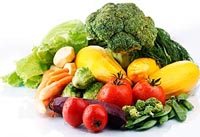IBS: Foods to Eat and Avoid

Irritable Bowel Syndrome (IBS), commonly known as Ďspastic coloní is the most common gastrointestinal disorder affecting 15-20% of the general population with twice as many women as men suffering from this disease.
Since no two bodies are the same, there is no one-size-fits-all IBS diet. Food doesnít cause IBS but may make you feel worse. Itís advised that you keep a food diary for 7 days, outlining a thorough history of your eating habits relating to your symptoms. Watch out for the common food culprits ó fat, dairy products and caffeine.
Approximately 90% of patients with IBS will respond favorably to a high fiber diet. Increase the fiber in your diet slowly; if you experience discomfort with certain fibers avoid them and opt for others. Gas-producing foods such as pulses can also lead to increased discomfort. Limit caffeine, alcohol and sorbitol (a type of sweetener) and stress as these may exacerbate symptoms. Avoid chewing gum too as more air may be swallowed.
It also is important to remember that simply eating a large meal may exacerbate symptoms, regardless of the types of foods eaten.
Some patients find peppermint helpful as itís a natural anti-spasmodic that relaxes muscles in the intestines. Itís recommended to eat smaller, more frequent meals and drink 6 Ė 8 glasses of water. De-stress and get your bowel motions back to normal by doing gentle exercises.
Barbara Bradley Bolen, Ph.D., says: Although there are no hard-and-fast rules when it comes to specific foods and IBS, the following foods have the potential for aggravating the digestive system:
- Fatty and fried foods
- Foods and drinks containing artificial sweeteners and sugar substitutes
- Gas-producing vegetables (broccoli, cabbage, beans)
- Alcohol
- Caffeine
- Fruits, if you have an intolerance to fructose
- Dairy products, if you suffer from lactose intolerance
|
|